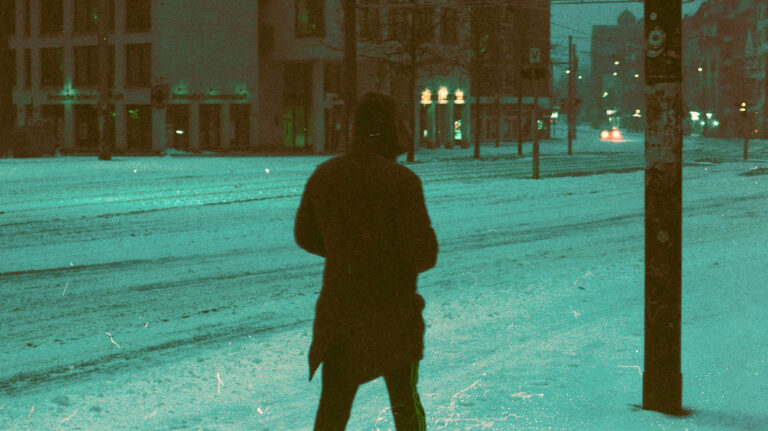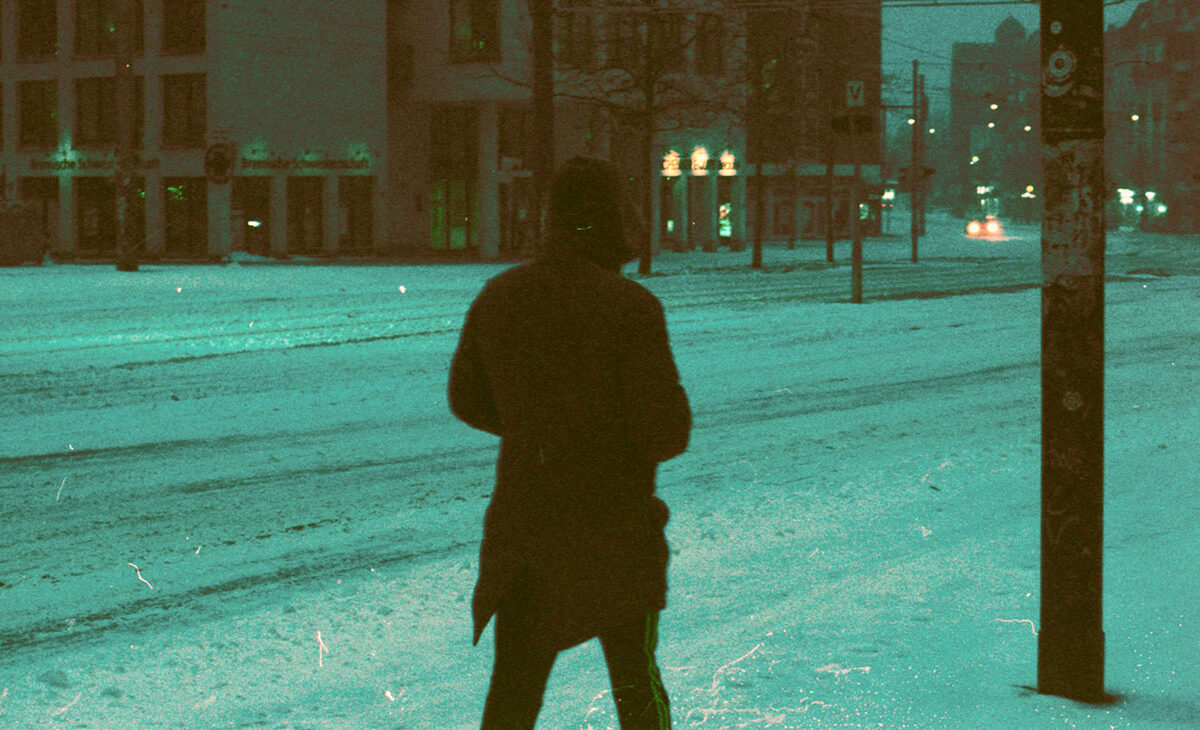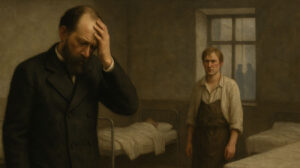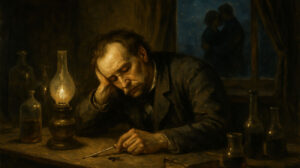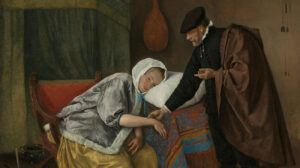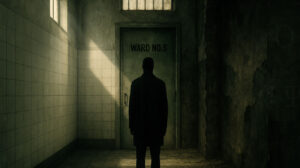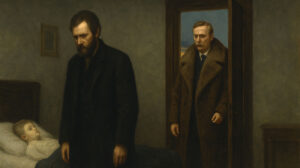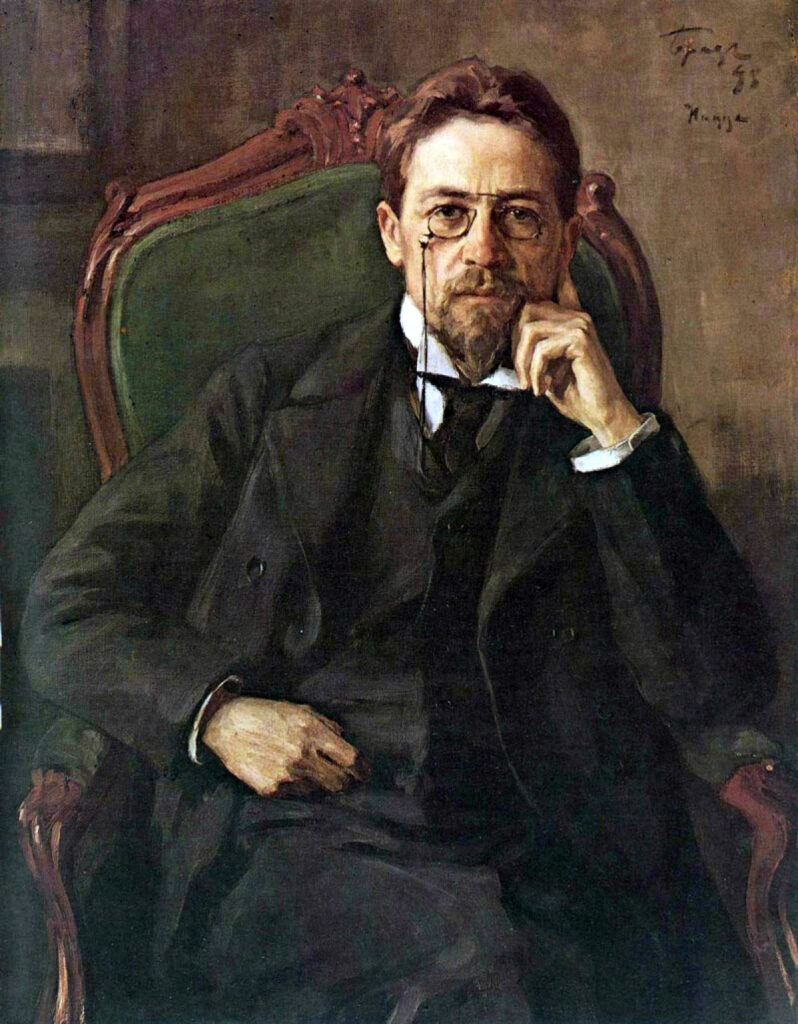
A medical student, Mayer, and an art student, Rybnikov, take their friend Vasilyev, a law student, out for a night on the town, visiting a few brothels on S. Street. After being fortified with a couple of glasses of vodka, they go to the first brothel, where Vasilyev is repulsed by “How cheap and stupid it all is!” After mixing with the women a bit, they go on to a second brothel, and then a third, and finally a fourth. Vasilyev is increasingly disgusted and begs to go home, but his friends dissuade him. At the last brothel, Vasilyev engages one of the whores in conversation: Why doesn’t she leave? Why doesn’t she better herself? But she yawns, obviously disinterested. A commotion ensues when one of the men slaps a whore, and Vasilyev runs out into the snowy street. His friends lead him home, while Vasilyev harangues them about the evils of prostitution. During the night, he has a “nervous breakdown” and in the morning his friends find him disoriented and incoherent. They take him to a psychiatrist, who agrees that prostitution is evil, but his attitude seems to be, “So what, don’t let it bother you. It’s just a natural part of society.”
Vasilyev is shaken to the core by his encounter with prostitution. He finds it morally repulsive and wants to “save” the women who practice it. Yet everyone else—his friends, the cab drivers, the psychiatrist, even the whores themselves—seems to accept prostitution as a normal aspect of society. Mayer, the medical student, even provides some statistics that indicate there are more whorehouses in London than in Moscow. Vasilyev doesn’t have the resilience to accommodate this moral dissonance in his worldview. Thus, he has a breakdown. Ironically, the psychiatrist is unable to even visualize the moral problem that Vasilyev is experiencing.
The Party and Other Stories
Anton Chekhov
London, Penguin Books, 1985.
Originally Published 1889
A previous version of this review was published in the NYU Literature, Arts, and Medicine Database (Litmed).
Web image by Alex Plesovskich

